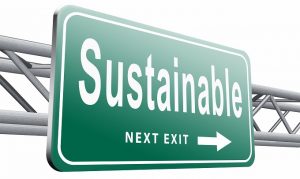
Op-ed: Beyond “green-washing”
David Nicolas on how the accommodation industry can best communicate & motivate sustainable choices
It’s no secret that sustainability initiatives and workforce shortages have been hot topics at industry events in recent months, no matter the vertical.
In fact, that was the case at the 80 TWENTY Hotel conferences I attended a few months back in Brisbane and on the Gold Coast.
Our latest AccomNews print issue is available now! Read it HERE.
Both topics have become realities for all hotels after more than two years since the start of the pandemic.
It was fascinating to hear all the strategies being implemented to attract young employees back to the industry, including high wages, flexibility, immigration sponsorship, and other measures, which are all important, but they failed to make the connection that their sustainability measures need to change to attract that young talent more successfully.
All accommodation properties have traditionally benefited from sustainable practices in two ways, namely improving resource efficiency by reducing energy consumption, and attracting environmentally conscious customers.
There certainly seems to be overwhelming evidence of the demand for brands to provide honest sustainable offerings.
Additionally, accommodation sector investors and employees who are concerned about environmental issues are driving the implementation of these sustainable practices in their organisations.
If the additional statistics below are any indication:
- About half of people would stop using a brand’s products and services if their values were violated.
- Sustainable brands are now desired by over 50 percent of consumers.
- Almost 90 percent of people believe brands and companies have a responsibility to protect the environment.
- A product with sustainability claims grows six times faster than one without.
- Seven out of 10 consumers avoid travel destinations or transportation options due to scepticism about sustainable practices.

The implementation of sustainability practices and its effective communication should be a priority for travel destinations. Yet many accommodation operators shy away from acting on these measures due to their belief, among others, that guest convenience will be sacrificed.
In most cases, accommodation businesses should not feel hindered when it comes to advancing their sustainable initiatives, especially if they know how to encourage behaviour change in an effective way.
By emphasising drivers (most important for increasing preference) or addressing sustainability barriers (most important for persuading sceptics), hotels can better capture the demand for sustainable consumerism.
The drivers
Brands can win preference among sustainability-minded consumers if they appeal to these motivations in a distinctive way:
- Altruism: Motivated by a desire to help.
- Fairness: Motivated by a sense of justice.
- Newness: Motivated by innovation.
- Belonging: Motivated by relatedness.
- Status: Motivated by esteem and rank.
- Hedonia: Motivated by pleasure.
The barriers
Recruiting sustainability-sceptics into buying sustainable products and services requires travel brands to address motivational barriers as well:
- Reactance: Motivated by freedom.
- Denial: Motivated by making a difference.
- Value: Motivated by value (benefits, costs).
- Tradition: Motivated by heritage and nostalgia.
- Patriotism: Motivated by national or group pride.
- Disgust: Motivated by cleanliness.
How can accommodation offerings best leverage these 12 motivational drivers and barriers to better sustainable interest and consumption from their guests?
With the advent of information technology, especially the rapid growth of social media, guests’ relationship management has become increasingly important.
Communicating effectively with the customer through email, SMS, blogs, and podcasts is also very important, especially after they have supported your destination.
There may be a lack of emphasis on communicating sustainability practices on accommodation websites, as they focus mostly on products and services that affect guest bookings.

Spicers retreats, The Calile Hotel in Brisbane and Lady Elliot Island featured at the 80 Twenty Hotel event exemplify this with excellent communication of sustainability practices on a variety of digital communications channels, including their website, blogs, and social media platforms.
Verbal and non-verbal communication strategies for sustainable hospitality
Verbal communications:
- Being accurate.
- Being comparable.
- Being positive.
Non-Verbal Communications:
- Certifications: Several previous studies have shown that third-party certification improves buyers’ trust-related beliefs and intentions.
- Being visible: Rather than simply making a statement about what has been done, guests should be able to see sustainable practices throughout the property including sensors, passive shading, rainwater harvesting, native vegetation, habitat protection, or locally sourced food.
- Being authentic: Guests who are unwilling or feel forced to be eco-friendly will have a negative perception of services. Accommodation businesses must find a way to sustainably steer guests toward following what hotels propose in terms of environmental protection.
- Being internalised: Accommodation businesses should become sustainable before communicating sustainability. Communication should extend from the inside to the outside. Guests can easily perceive what insiders do based on the behaviour of the management team, staff, and supplier.

The specific motivations and goals for each of the stakeholders including accommodation sector investors, insurers, and employees need to be established before they can be effectively communicated to take the desired action.
Investors are more interested in how Environmental, Social, and Governance (ESG) factors connect to the long-term business strategy and how the company manages its ESG risks, which can typically be found in annual ESG reports. Opposed to dissecting dense reports, tables, or data sheets, employees and consumers are more interested in how the company adds value to the community.
It’s increasingly important for accommodation businesses to take a stand on sustainability issues and talk about them with a voice, instead of just shouting their achievements, but actually engaging stakeholders in a dialogue.
A big failure to realise that more and more guests want to ‘buy into’ a brand rather than ‘buy from it’, and they want to stay at an accommodation business they can trust to live up to their ethical and social commitments.
Now that we’re living in an ‘integrity economy’, it’s important to not just walk the talk, but talk about it while you walk.
David Nicolas is the founder of Reson8 marketing agency. A well-being evangelist and former optometrist, David now works with well-being including hospitality brands to communicate sustainability and well-being initiatives in their business more effectively.
It is his goal for more purposeful brands to feature a “sustainable tab” on their website.

AccomNews is not affiliated with any government agency, body or political party. We are an independently owned, family-operated magazine.







